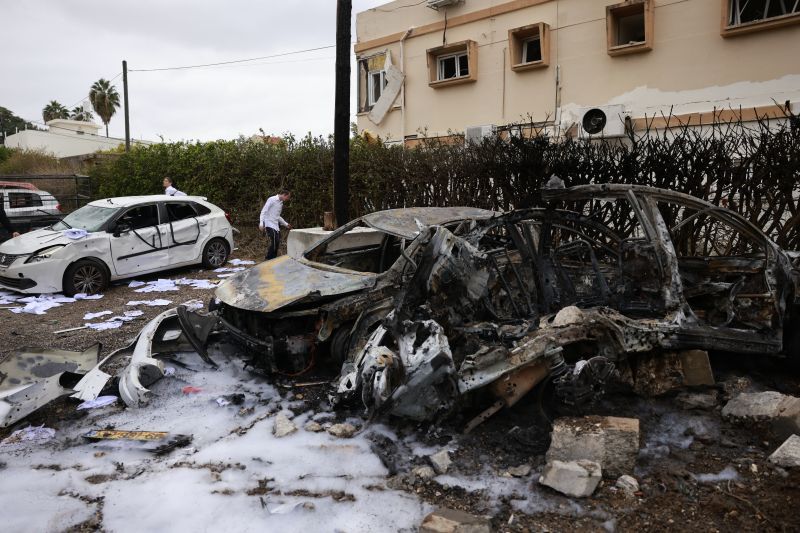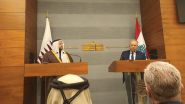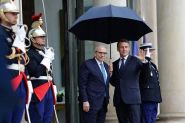
Anti-aircraft sirens sounded incessantly on Sunday in many parts of Israel, including Tel Aviv, the target of several hundred projectiles fired by Hezbollah from Lebanon, according to the Israeli army, while Hebrew state officials stepped up their threats against the country of the Cedars.
Former Israeli War Cabinet minister and opposition leader Benny Gantz accused the Lebanese government of allowing the pro-Iranian group to operate unchecked, while calling on the Israeli government to go after its “assets”.
“The Lebanese government is giving Hezbollah a free hand, and the time has come to act decisively against its assets,” he posted on social network X.
Meanwhile, Israeli media outlet Maariv revealed that the Israeli army “may target the Lebanese Parliament building in Beirut”, in order to declare “victory” and send the inhabitants of northern Israel back to their homes, according to a security source.
Continuous sirens
Air raid sirens sounded throughout the day in many parts of the country, almost continuously, including in the greater Tel Aviv suburbs, which were the target of at least four attacks. According to Israeli military radio, around 4 million inhabitants were affected.
“Around 160 projectiles fired by the Hezbollah terrorist organization entered Israel from Lebanon,” said the Israeli army in a mid-day statement, assuring us that some had been intercepted.
By early evening, the army had counted some 250 projectiles. Several Israeli media reported a total of at least 340 rockets.
According to first-aid organizations and hospitals, at least eleven people were injured, including a man in his sixties in “moderate to serious” condition.
In a statement, Hezbollah said it had “launched, for the first time, an air attack using a swarm of combat drones on the Ashdod naval base” in southern Israel.
Later in the day, the pro-Iranian movement added that it had fired “a salvo of advanced missiles and a swarm of combat drones” at a “military target” in Tel Aviv (central Israel) and missiles at the nearby Glilot military intelligence base.
Contacted by AFP, the Israeli army did not comment on these statements.
These major strikes follow at least four Israeli strikes in central Beirut last week, one of which killed Hezbollah spokesman Mohammed Afif.
In a speech on Wednesday, the leader of the Lebanese Islamist movement, Naïm Qassem, said that the response to the recent strikes on the capital should be “expected in the center of Tel Aviv."
On Sunday, the southern suburb of the Lebanese capital was once again the target of a series of Israeli strikes.



Comments